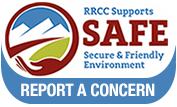Service Learning FAQs
Frequently Asked Questions
For Faculty:
- What are the areas of focus for service learning?
- What are some examples of service-learning?
- How will the Service Learning Center assist faculty?
- Is Service learning sometimes called something else?
- I am too busy as an educator, so how can I fit Service Learning into my courses that are already running smoothly?
- Service Learning sounds like hokum or the trend in education right now; why bother?
For Students:
- What are the areas of focus for service learning?
- How can I apply my service learning experience?
- What are some examples of service-learning?
- Is Service learning sometimes called something else?
- Why should I consider Service Learning?
- Service Learning sounds like hokum or the trend in education right now; why bother?
For Community:
- What are the areas of focus for service learning?
- Is Service Learning sometimes called something else?
- Service Learning sounds like hokum or the trend in education right now; why bother?
For Faculty:
What are the areas of focus for service learning?
- Career exploration
- Critical thinking and problem solving
- Values clarification
- Social and personal development
- Civic and community responsibility
- Help students find appropriate placement sites for service-learning or volunteering
- Assist faculty in incorporating service-learning into their classes
- Build connections with our community partners in developing reciprocal service for students, faculty, and staff
What are some examples of service-learning?
- Business faculty and students work with an under-resourced non-profit community partner to create web pages and marketing brochures
- Students practice critical reflection through such activities as journal writing, group discussion, or presentations that link the service they did in the community to course content
- Dental Hygiene or Occupational Therapy Assisting students provide low cost services and educational resources to uninsured populations
How will the Service Learning Center assist faculty?
We will work with you to designate your class as a service learning course, help you form community partnerships, brainstorm possible critical reflection assignments, anything that will engage your students with your curriculum in new and exciting ways
Is Service learning sometimes called something else?
Yes, it is also called civic engagement, community engagement, experiential engagement, or even hands-on learning.
I am too busy as an educator, so how can I fit Service Learning into my courses that are already running smoothly?
You don’t have to spend extra time grading because your assignments can be minimal; plus, assignments are active and interactive, making the grading process smoother, and maybe even faster. Besides, you may not have to create an entirely new assignment, or if you do, keep it short and sweet, like an extra-credit or something for you to pose to the students at the end of the semester along with their final. Or, you probably have terrific assignments already set up, and maybe a Service Learning component can be woven into one of those so you don’t have to re-do your curriculum. There are resources here at RRCC to help you get started, in addition to already developed assignments and curriculum for all types of courses.
Service Learning sounds like hokum or the trend in education right now; why bother?
Service Learning has been around since Socrates and has continued to grow since the 1960’s because it works. Students learn inside and outside of the classroom by studying the world around them through a teacher’s learning outcomes in class, any class. Students want to learn, and want to share what they learn with their peers, their families, and their communities. By helping others, students develop their own “selves”, becoming valuable members to their society and feeling valued in what they do. Because Service Learning matters not just to students but to their local and global community members, it is now and continues to be a worthwhile approach to teaching and learning.
For Students:
What are the areas of focus for service learning?
- Career exploration
- Critical thinking and problem solving
- Values clarification
- Social and personal development
- Civic and community responsibility
- Help students find appropriate placement sites for service-learning or volunteering
- Assist faculty in incorporating service-learning into their classes
- Build connection with our community partners in developing reciprocal service for students, faculty, and staff
How can I apply my service learning experience?
- Develop critical thinking and problem solving skills
- Clarify your personal values and dedication to your degree program
- Explore career options
- Develop socially and personally
- Create connections to civic and community partners
- AND earn college credit for course work that includes a service component
What are some examples of service-learning?
- Business faculty and students work with an under-resourced non-profit community partner to create web pages and marketing brochures
- Students practice critical reflection through such activities as journal writing, group discussion, or presentations that link the service they did in the community to course content
- Dental Hygiene or Occupational Therapy Assisting students provide low cost services and educational resources to uninsured populations
Is Service learning sometimes called something else?
Yes, it is also called civic engagement, community engagement, experiential engagement, or even hands-on learning.
Why should I consider Service Learning?
Service learning has been shown to improve retention at schools and persistence in the classroom because students build rapport with one another, as well as develop deeper respect for their communities. Students are equally happy to get out of the classroom and out into the world to do something different than what’s defined in their textbooks. Besides, students see the benefit of spending time in the real world during their community college years, adding their service experience to their resume and four-year college applications. Providing Service Learning assignments benefits the future of your students.
Service Learning sounds like hokum or the trend in education right now; why bother?
Service Learning has been around since Socrates and has continued to grow since the 1960’s because it works. Students learn inside and outside of the classroom by studying the world around them through a teacher’s learning outcomes in class, any class. Students want to learn, and want to share what they learn with their peers, their families, and their communities. By helping others, students develop their own “selves”, becoming valuable members to their society and feeling valued in what they do. Because Service Learning matters not just to students but to their local and global community members, it is now and continues to be a worthwhile approach to teaching and learning.
For Community:
What are the areas of focus for service learning?
- Career exploration
- Critical thinking and problem solving
- Values clarification
- Social and personal development
- Civic and community responsibility
- Help students find appropriate placement sites for service learning or volunteering
- Assist faculty in incorporating service-learning into their class
- Build connection with our community partners in developing reciprocal service for students, faculty, and staff
Is Service Learning sometimes called something else?
Yes, it is almost called civic engagement, community engagement, experiential engagement, or even hands-on learning
Service Learning sounds like hokum or the trend in education right now; why bother?
Service Learning has been around since Socrates and has continued to grow since the 1960’s because it works. Students learn inside and outside of the classroom by studying the world around them through a teacher’s learning outcomes in class, any class. Students want to learn, and want to share what they learn with their peers, their families, and their communities. By helping others, students develop their own “selves”, becoming valuable members to their society and feeling valued in what they do. Because Service Learning matters not just to students but to their local and global community members, it is now and continues to be a worthwhile approach to teaching and learning.









